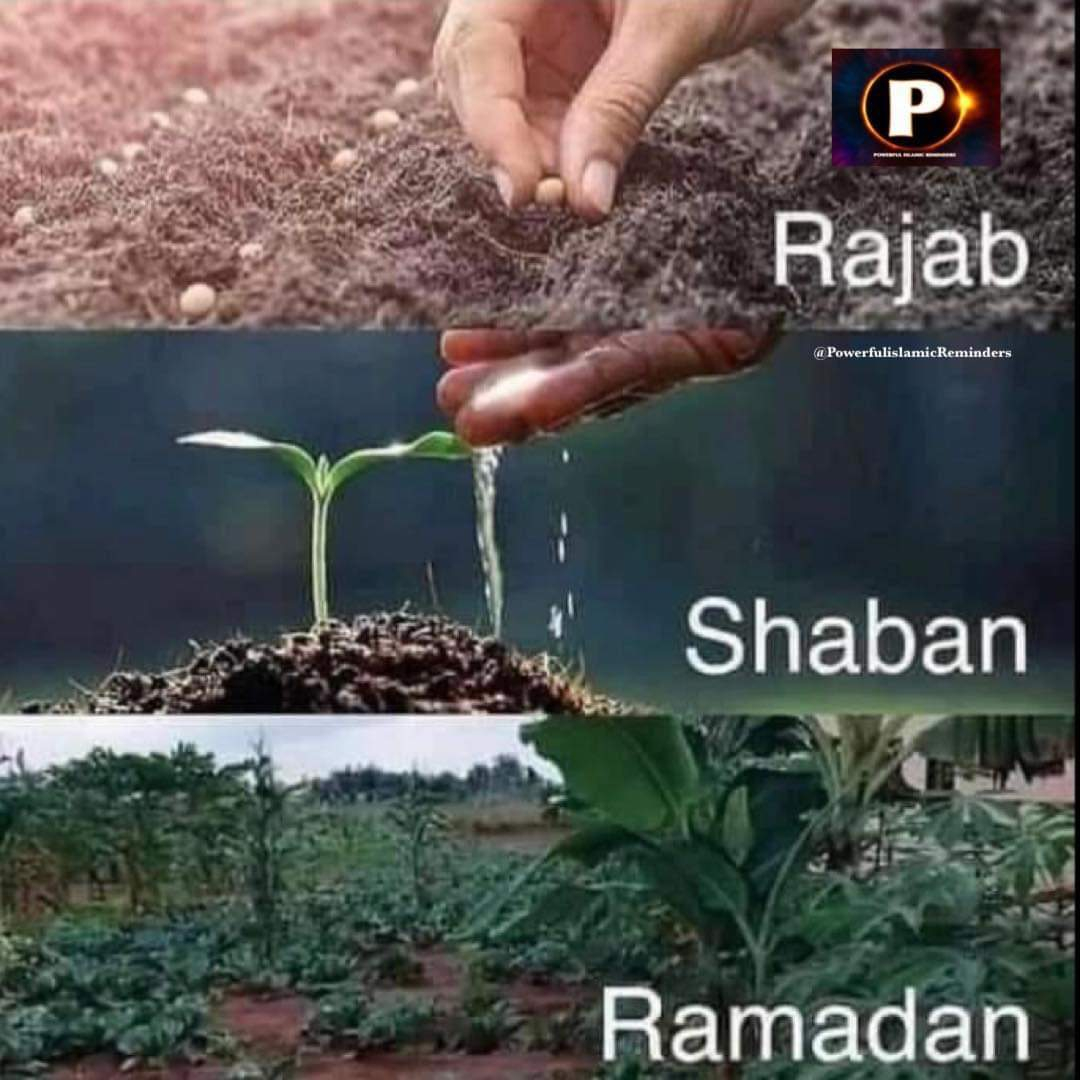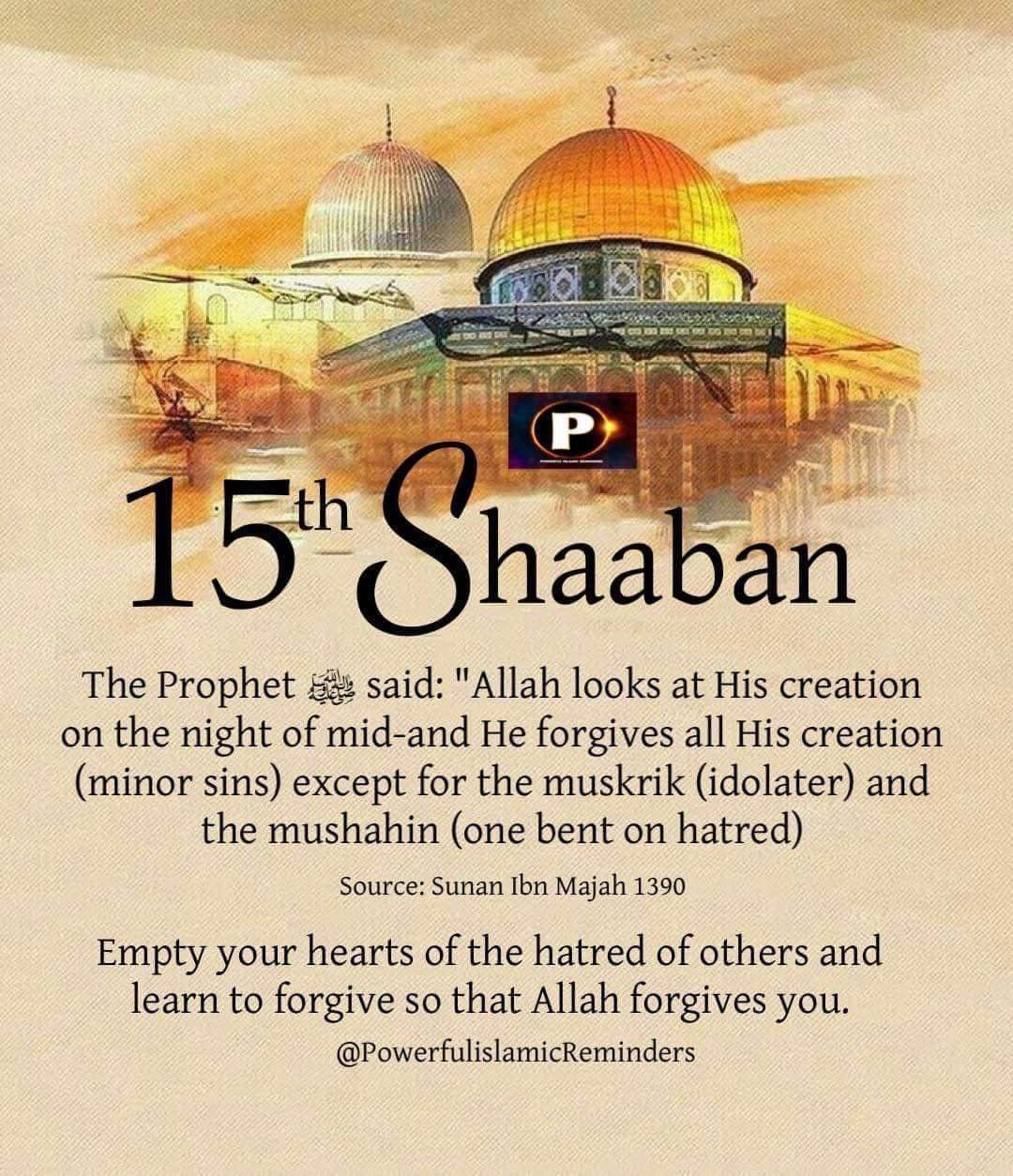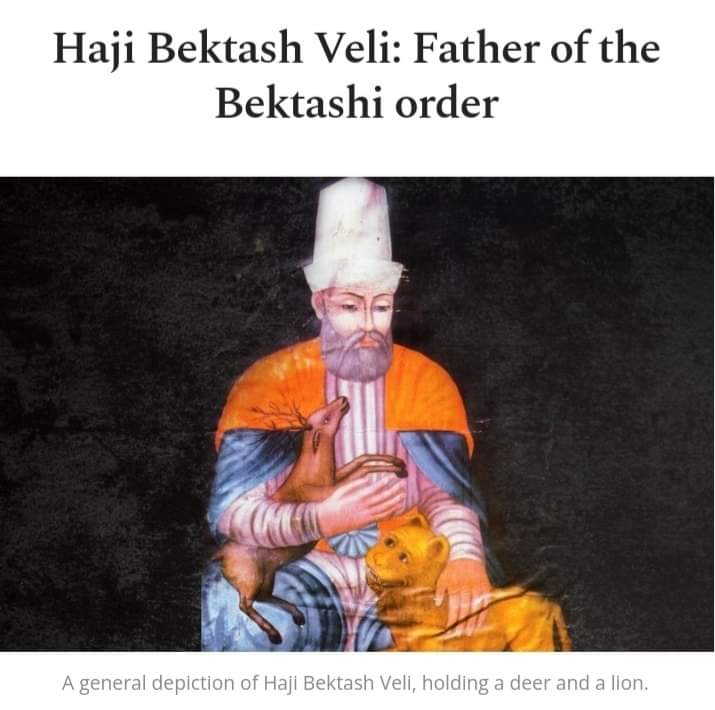“𝑹𝒂𝒋𝒂𝒃 𝒊𝒔 𝒕𝒉𝒆 𝒎𝒐𝒏𝒕𝒉 𝒕𝒐 𝒔𝒐𝒘 𝒕𝒉𝒆 𝒔𝒆𝒆𝒅𝒔; 𝑺𝒉𝒂’𝒃𝒂𝒏 𝒊𝒔 𝒕𝒉𝒆 𝒎𝒐𝒏𝒕𝒉 𝒕𝒐 𝒊𝒓𝒓𝒊𝒈𝒂𝒕𝒆 𝒕𝒉𝒆 𝒄𝒓𝒐𝒑; 𝒂𝒏𝒅 𝑹𝒂𝒎𝒂𝒅𝒂𝒏 𝒊𝒔 𝒕𝒉𝒆 𝒎𝒐𝒏𝒕𝒉 𝒕𝒐 𝒓𝒆𝒂𝒑 𝒕𝒉𝒆 𝒉𝒂𝒓𝒗𝒆𝒔𝒕."
So let’s prepare ourselves by doing righteous deeds in Rajab, and pay extra attention to making them perfect in Sha‘baan, so that he will be able to do them in a perfect manner in Ramadan.
The scholars refer to this idea in several ways, including the following:
it was said that Rajab is for a person to stop drifting away, Sha‘baan is for striving and sincerity, and Ramadan is for truthfulness and purity.
Rajab is the month of repentance, Sha‘baan is the month of love, and Ramadan is the month of closeness to Allah.
Rajab is the month of sanctity, Sha‘baan is the month of service, and Ramadan is the month of blessing.
Rajab is the month of worship, Sha‘baan is the month of turning away from this world, and Ramadan is the month of increase.
Rajab is the month in which Allah multiplies the reward of good deeds, Sha‘baan is the month of expiating bad deeds, and Ramadan is the month of waiting for gifts and honours.
Rajab is the month of those who are excelling, Sha‘baan is the month of those whose progress is moderate, and Ramadan is the month of the sinners [in which they can mend their ways].
Allahumma balighna Ramadan!
#rajab #shaban #ramadan
So let’s prepare ourselves by doing righteous deeds in Rajab, and pay extra attention to making them perfect in Sha‘baan, so that he will be able to do them in a perfect manner in Ramadan.
The scholars refer to this idea in several ways, including the following:
it was said that Rajab is for a person to stop drifting away, Sha‘baan is for striving and sincerity, and Ramadan is for truthfulness and purity.
Rajab is the month of repentance, Sha‘baan is the month of love, and Ramadan is the month of closeness to Allah.
Rajab is the month of sanctity, Sha‘baan is the month of service, and Ramadan is the month of blessing.
Rajab is the month of worship, Sha‘baan is the month of turning away from this world, and Ramadan is the month of increase.
Rajab is the month in which Allah multiplies the reward of good deeds, Sha‘baan is the month of expiating bad deeds, and Ramadan is the month of waiting for gifts and honours.
Rajab is the month of those who are excelling, Sha‘baan is the month of those whose progress is moderate, and Ramadan is the month of the sinners [in which they can mend their ways].
Allahumma balighna Ramadan!
#rajab #shaban #ramadan
“𝑹𝒂𝒋𝒂𝒃 𝒊𝒔 𝒕𝒉𝒆 𝒎𝒐𝒏𝒕𝒉 𝒕𝒐 𝒔𝒐𝒘 𝒕𝒉𝒆 𝒔𝒆𝒆𝒅𝒔; 𝑺𝒉𝒂’𝒃𝒂𝒏 𝒊𝒔 𝒕𝒉𝒆 𝒎𝒐𝒏𝒕𝒉 𝒕𝒐 𝒊𝒓𝒓𝒊𝒈𝒂𝒕𝒆 𝒕𝒉𝒆 𝒄𝒓𝒐𝒑; 𝒂𝒏𝒅 𝑹𝒂𝒎𝒂𝒅𝒂𝒏 𝒊𝒔 𝒕𝒉𝒆 𝒎𝒐𝒏𝒕𝒉 𝒕𝒐 𝒓𝒆𝒂𝒑 𝒕𝒉𝒆 𝒉𝒂𝒓𝒗𝒆𝒔𝒕."
So let’s prepare ourselves by doing righteous deeds in Rajab, and pay extra attention to making them perfect in Sha‘baan, so that he will be able to do them in a perfect manner in Ramadan.
The scholars refer to this idea in several ways, including the following:
it was said that Rajab is for a person to stop drifting away, Sha‘baan is for striving and sincerity, and Ramadan is for truthfulness and purity.
Rajab is the month of repentance, Sha‘baan is the month of love, and Ramadan is the month of closeness to Allah.
Rajab is the month of sanctity, Sha‘baan is the month of service, and Ramadan is the month of blessing.
Rajab is the month of worship, Sha‘baan is the month of turning away from this world, and Ramadan is the month of increase.
Rajab is the month in which Allah multiplies the reward of good deeds, Sha‘baan is the month of expiating bad deeds, and Ramadan is the month of waiting for gifts and honours.
Rajab is the month of those who are excelling, Sha‘baan is the month of those whose progress is moderate, and Ramadan is the month of the sinners [in which they can mend their ways].
Allahumma balighna Ramadan!
#rajab #shaban #ramadan
0 Σχόλια
0 Μοιράστηκε




